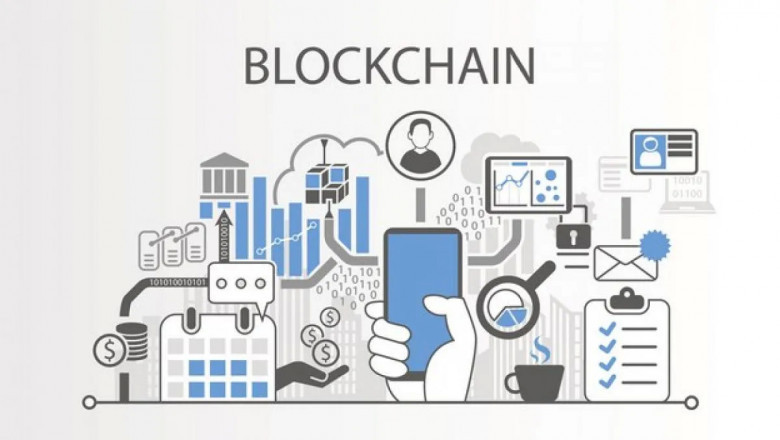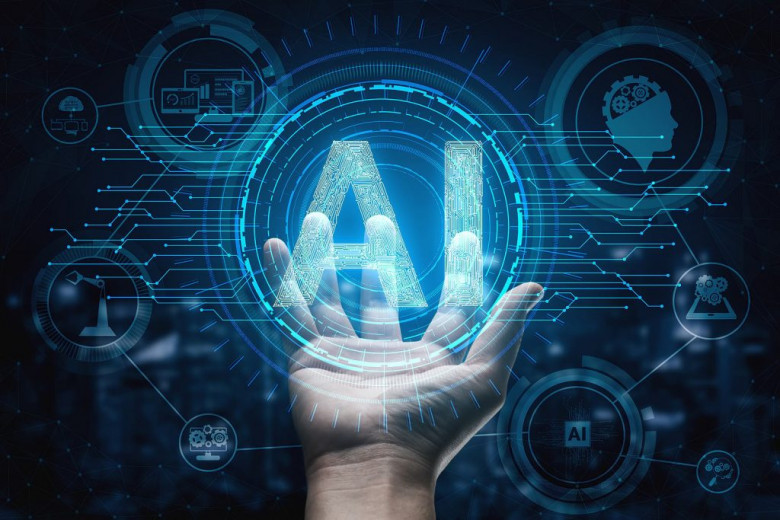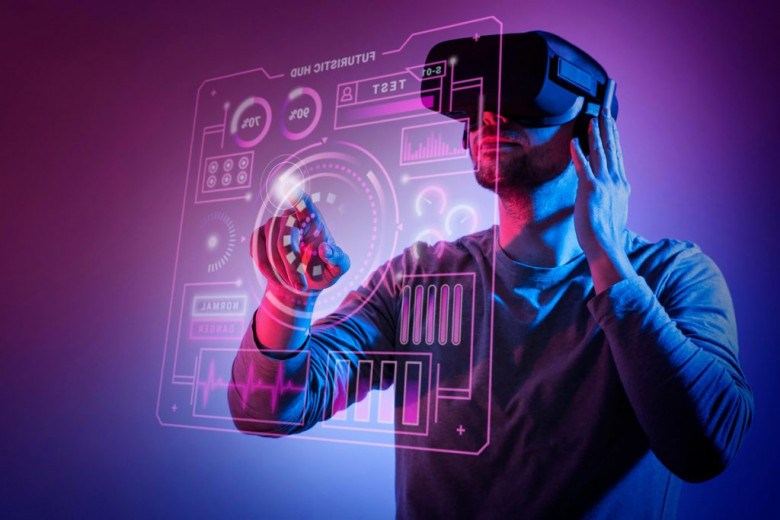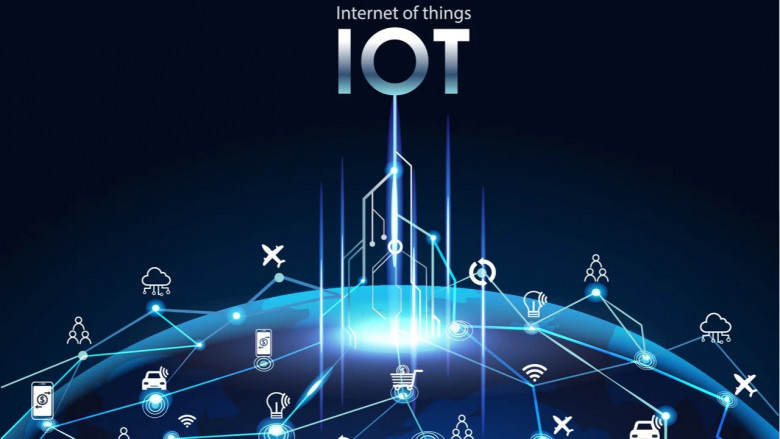views

We are living in the age of information and technology where with each passing day there is a rise of IT companies in developed and developing countries. And if you’re an entrepreneur with a business concept who wants to launch a company then you do not need to look further. Dubai, often known as the city of the future, a well-known centre for industry research and development must be at the top of your list.
Dubai provides exciting opportunities and a favourable business environment. Dubai's pro-business attitude and support for enterprises from all industries have resulted in a strong, lively economy. The city not only boasts a thriving community of start-up accelerators and regulatory sandbox schemes for the development and testing of new tech business models but is rated number one in global foreign direct investments and major sections in emerging technological sectors.
As the technologically based start-up scene continues to grow in the Middle East, UAE’s commitment to becoming a global leader in technological advancements has made Dubai its home to some of the hottest enterprises in the region. Off the 100 start-ups shaping the Fourth Industrial Revolution, 29 are based in UAE and almost half of them are based right here, in Dubai! Not to forget the fact that foreign nationals gain 100 percent of ownership, tax benefits, and custom duty benefits to name a few important factors while compared to other countries.
To point out some details on why Dubai is an attractive start-up hub for entrepreneurs from across the world –
- Easier to set up a business
- Relaxed Foreign Ownership and Visas
- Technology and Investments
- An Ever-growing Economy
- Frontrunner in adopting the latest trends and technologies
Additionally, Dubai is also the frontrunner in adopting the latest trends and technologies while shaping up an enabling ecosystem allowing businesses across sectors to innovate with futuristic long-term strategies across AI (Artificial Intelligence), Blockchain, Metaverse, and IoT (Internet of Things). The government continues to work to transform Dubai into a smart, intelligent, responsive and personalized city of the future!
A brief on some of the latest technologies adopted by the UAE.
Blockchain

Blockchain is a method of storing data in such a way that it is difficult or impossible to alter, hack, or manipulate it. It is a digital log of transactions that is duplicated and distributed across the blockchain's complete network of computer systems. Each block on the chain contains several transactions, and whenever a new transaction occurs on the blockchain, a record of that transaction is added to the ledger of each participant. Distributed Ledger Technology (DLT) is a decentralized database that is administered by various people.
Why so much hype around the blockchain?
There have been numerous attempts for creating digital money and none of them has been successful in the past. The major issue prevailing is that of trust i.e. if someone is creating a new currency how can they be trusted knowing very well that they can give themselves some amount and/or steal someone else’s money for themselves! This is where this problem was solved by using a specific type of database called ‘Blockchain’.
Usually, in most normal databases such as SQL Database, there is someone who is in charge who can change the entries, however, Blockchain is different because nobody is in charge; it's run by the people who use it!
H.H. Sheikh Mohammed bin Rashid Al Maktoum has said that “Dubai will be the first city fully powered by Blockchain under the Dubai Blockchain Strategy which is a result of a collaboration between the Digital Dubai Office and the Dubai Future Foundation to continually explore and evaluate the latest technology innovations that demonstrate an opportunity to deliver more seamless, safe, efficient, and impactful city experiences.”
AI (Artificial intelligence)

A field of computer science is concerned with creating intelligent machines that can accomplish activities that would normally need human intelligence. To put it in simpler terms, Artificial Intelligence is the simulation of human intelligence processes by machines, especially computer systems. Vendors have been scrambling to showcase how their products and services integrate AI as the hoopla around AI has grown. For designing and training machine learning algorithms, AI requires a foundation of specialized hardware and software. Although no single computer language is synonymous with AI, a handful stand out, including Python, R, and Java.
Based on the UAE National Strategy for Artificial Intelligence 2031, there are plans to transform UAE into a world leader in A.I. by investing in people and industries that are key to success! And in the words of His Highness Sheikh Mohammed bin Rashid Al Maktoum, “We want the UAE to become the world's most prepared country for Artificial Intelligence.”
The UAE has the vision to become one of the leading nations in AI by 2031 while creating new economic, educational, and social opportunities for citizens, governments and businesses and generating up to AED 335 billion in extra growth.
Metaverse

An iteration of the internet as a Single, Universal, and Immersive Virtual world that is facilitated by the use of Virtual and Augmented Reality headsets! In layman's terms, the metaverse is a three-dimensional, hyper-realistic virtual-reality arena where users interact with one another in computer-generated surroundings like stores, learning environments, and conference rooms, among other things. It incorporates social media, augmented reality, virtual reality, video games, and other cutting-edge technology.
Having originated from the 1992 science fiction novel, Snow Crash, its development is linked to the advancement of virtual reality due to ever-increasing demands. Some components of this technology have already been developed and used within online video games. Popular names include World of Warcraft, Minecraft, and Fortnite which have already included metaverse as part of them. Recently, in 2021, Technology giant, Facebook renamed itself as ‘Meta’ and announced that they are committed to developing a metaverse!
Since 2017 post acquiring the VR company, AltSpcaceVR, Microsoft has implemented metaverse features such as virtual avatars and meetings held virtually in Microsoft Teams.
Access points for the metaverse include general-purpose computers and smartphones, augmented reality, mixed reality, and virtual reality. Current hardware development is focused on overcoming the limitations of VR headsets, sensors, and increasing immersion with haptic technology. Interoperability is a major concern in metaverse development, stemming from concerns about transparency and privacy.
Microsoft has, very recently, in 2019, adapted this for HoloLens 2 (a pair of mixed reality glasses developed and manufactured by Microsoft)
An article from May 20th states that The Dubai Metaverse Strategy, which was announced by the Dubai Ruler Sheikh Mohammed bin Rashid Al Maktoum earlier this month, aims to increase the contribution of the metaverse sector to the emirate’s economy to $4 billion by 2030. It also intends to ensure that the metaverse increases its contribution to 1 percent of the emirate’s GDP.
IoT (Internet of Things)

An interconnected network of computing devices, mechanical and digital machines, items, and people with Unique Identifiers (UIDs) and the ability to transfer data with the need of any human-to-human or human-to-computer interaction is how IoT could be defined in the best possible way.
Someone with a heart monitor implant, an animal with a biochip transponder (wireless communication, monitoring, control device which detects and responds to incoming signals), an automobile with built-in sensors alerting the driver about low tyre pressure, or any natural or man-made object which can be assigned an IP address and transmit data over a network are examples of IoT.
Organizations across a wide range of industries are increasingly turning to IoT software development to improve operational efficiency, better understand customers to provide better customer service, improve decision-making, and boost the value of their businesses.
The Smart Dubai Internet of Things Strategy is a comprehensive plan to use a citywide partner network to secure and promote Dubai's digital wealth while also providing efficiency and peace of mind to all city inhabitants, visitors, company owners, and government officials. The plan kicked off with the unveiling of two main initiatives led by Smart Dubai to promote the secure sharing and exchange of information via the Internet of Things.












